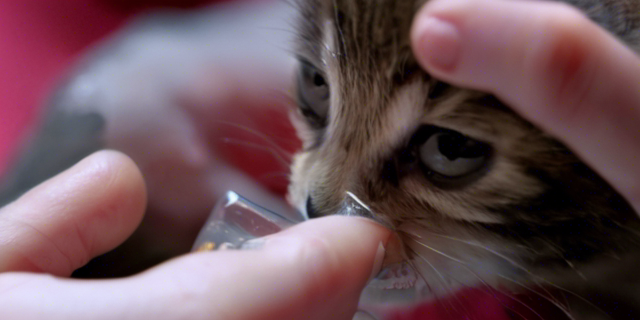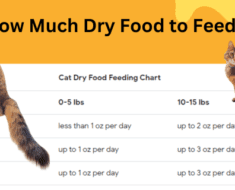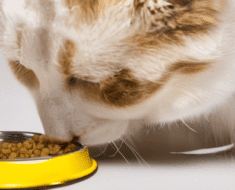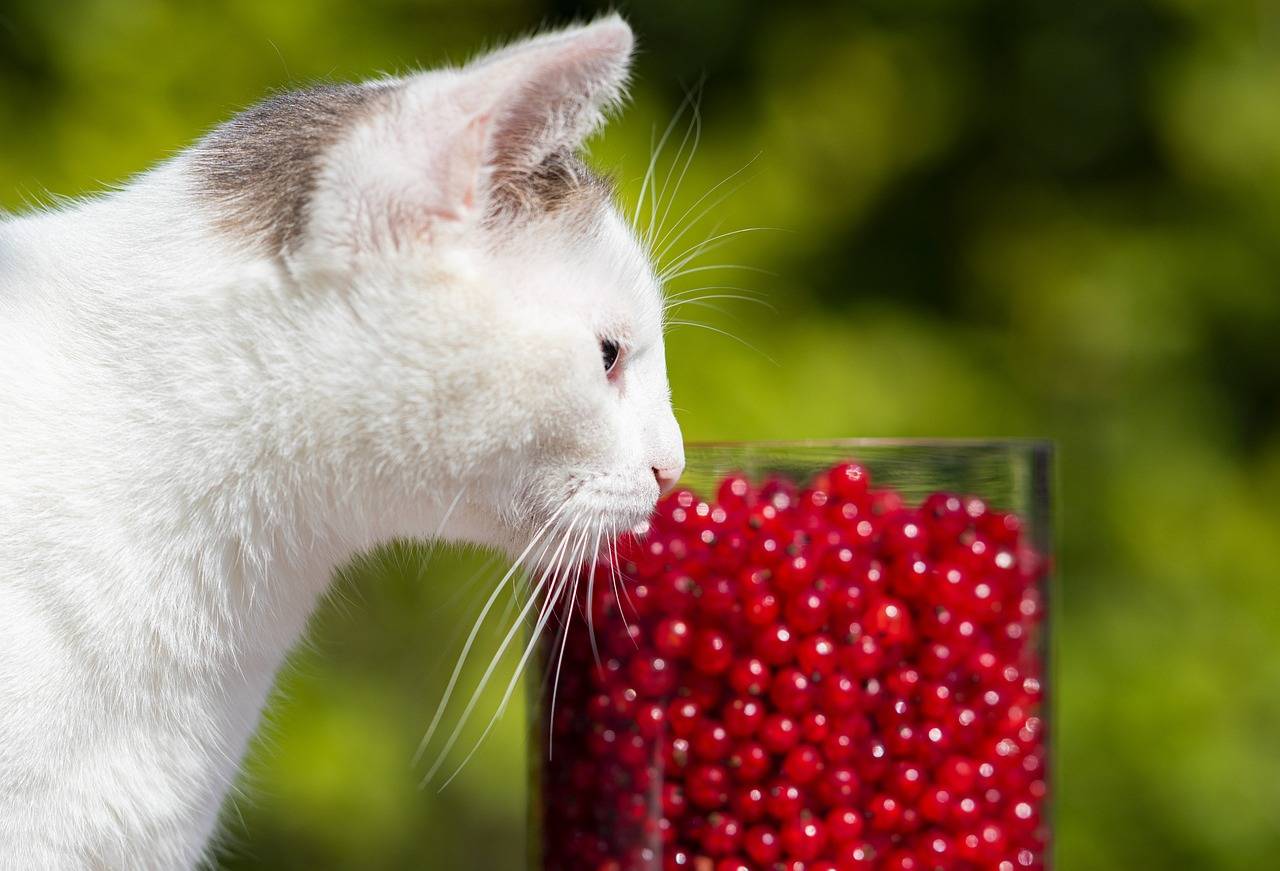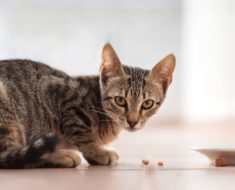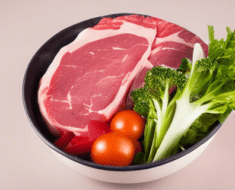For a kitten, feed according to weight, typically 1 ounce per pound. Monitor their appetite and adjust accordingly.
Kittens need proper nutrition for their health development. Providing the right amount of food is crucial for their health and well-being. Understanding how much to feed a kitten can ensure they receive the necessary nutrients for their growth.
This article will discuss the recommended feeding guidelines for kittens, factors that can influence their food intake, and tips for establishing a healthy feeding routine. By following these guidelines, you can help your kitten maintain a healthy weight and thrive throughout their early stages of life.
The Importance Of Proper Nutrition For Kittens
Proper nutrition is crucial for kittens’ growth and development. The amount of food a kitten should eat depends on its age, weight, and activity level. It’s important to follow feeding guidelines provided by a veterinarian to ensure the kitten gets the right balance of nutrients for optimal health.
|
|
|
|
Determining The Right Amount Of Food For Your Kitten
When determining the right amount of food for your kitten, consider their age and weight. Kittens need more nutrients to support their growth. Provide small, frequent meals throughout the day to maintain their energy levels. Portion control is crucial to prevent overeating and obesity. Follow guidelines to ensure your kitten’s nutritional needs are met.
Types Of Food Suitable For Kittens
Providing them with high-quality kitten food is essential to meet their nutritional needs. Options for kitten food include wet food, dry kibble, and a combination of both. It’s important to choose a food that is specifically formulated for kittens to ensure they receive the proper nutrients. A balanced diet for kittens should include protein, fats, carbohydrates, vitamins, and minerals. Feeding guidelines may vary based on the kitten’s age, weight, and activity level. Always consult with a veterinarian to determine the right amount of food for your kitten. Managing portion sizes is crucial to prevent overeating or underfeeding. By providing the appropriate amount of food, you can support your kitten’s overall health and well-being.
Feeding Schedule For Kittens
It is important to establish a regular feeding schedule to ensure they receive the right amount of food for their age and size.
Frequency of Meals: Kittens under 4 months old require four meals a day. This helps them meet their high energy needs and aids proper growth.
Between the ages of 4 to 6 months, you can gradually reduce the number of meals to three times a day. This helps them transition to a more adult-like feeding pattern.
Transitioning to Adult Cat Food: Around 1 year old, kittens can gradually transition to adult cat food. It is essential to introduce the new food gradually, mixing it with their current kitten food for about 7 to 10 days. This helps prevent digestive issues.
Remember to provide a balanced diet specific to kittens, including protein, healthy fats, vitamins, and minerals. Always consult your veterinarian for personalized feeding guidelines based on your kitten’s specific needs.
Monitoring Your Kitten’s Dietary Needs
A kitten’s dietary needs are crucial for their growth and development. Monitoring their food intake is essential to ensure they are getting the right amount of nutrients. Overfeeding or underfeeding can have negative consequences on their health. Signs of overfeeding include weight gain, excessive begging, and an upset stomach. On the other hand, signs of underfeeding include weight loss, lethargy, and a dull coat. It’s important to adjust their food intake based on their growth rate. Kittens typically require more food as they grow, so it’s essential to follow feeding guidelines provided by your veterinarian. Keep an eye on their body condition and adjust their portion sizes accordingly to maintain a healthy weight. Providing a well-balanced and appropriate diet is key to a kitten’s overall health and well-being.
Frequently Asked Questions On How Much Food Should A Kitten Eat
Is 2 Meals Enough For A Kitten?
Yes, 2 meals are enough for a kitten to meet its nutritional needs throughout the day.
How Much Wet Food Should A Cat Eat?
A cat should eat about 1/4 to 1/2 a can of wet food per day, split into multiple meals. Adjust based on size and activity level. It’s crucial to consult a vet for specific dietary needs.
How Much Should A 5-Week Old Kitten Eat?
A 5-week-old kitten should eat around 2-4 tablespoons of kitten formula or milk replacement every 3-4 hours.
How Often Should I Feed My Kitten?
Feed your kitten small meals throughout the day, ideally 4-6 times, to meet their high energy needs.
Conclusion
In a nutshell, understanding the nutritional needs of a kitten is crucial for its health and growth. It’s important to provide the right balance of nutrients and appropriate portion sizes to support their development. By monitoring their weight, consulting with a vet, and choosing high-quality kitten food, you can ensure a healthy future for your feline friend.
